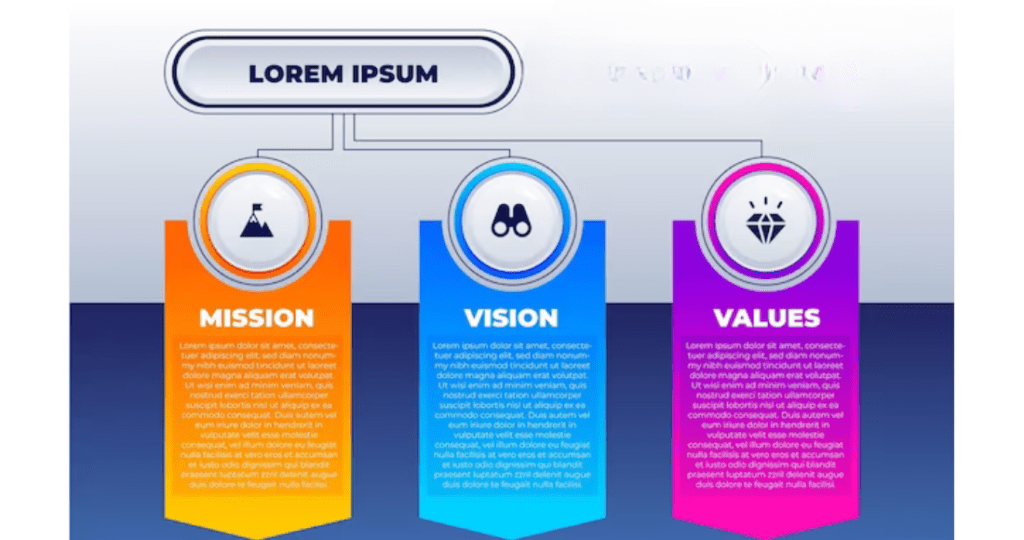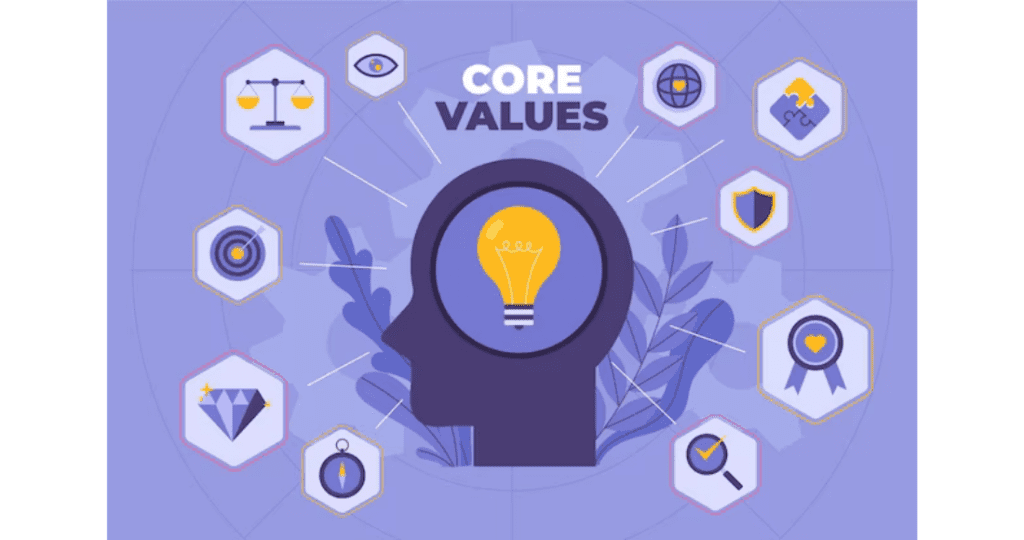Examples of core values are essential guiding principles that shape the culture and direction of organizations and individuals. These values serve as the moral compass, influencing decisions, actions, and relationships. Whether you’re an organization looking to define your core values or an individual seeking to align your life with your beliefs, here are 20 examples of core values to inspire and guide you.
Examples of core values
Examples of core values are given below,
1. Integrity
Integrity is the foundation of trust. It means being honest, transparent, and ethical in all your dealings, even when no one is watching. Organizations and individuals with a commitment to integrity build strong, lasting relationships.
2. Accountability
Accountability is about taking responsibility for your actions and decisions. It involves admitting mistakes and learning from them, fostering a culture of continuous improvement.
3. Respect
Respect means treating others with dignity, regardless of their background, beliefs, or position. It creates an inclusive and harmonious environment where everyone’s voice is valued.
4. Innovation
Innovation is the driving force behind progress. Embracing it means constantly seeking new ideas, approaches, and solutions to stay ahead in a rapidly changing world.
5. Excellence
Excellence is the relentless pursuit of quality in everything you do. It’s about setting high standards and continuously striving to surpass them.
6. Teamwork
Teamwork recognizes that collaboration often leads to better results than individual efforts. It involves effective communication, shared goals, and mutual support.
7. Customer-Centric
A customer-centric approach prioritizes meeting customer needs and exceeding their expectations. It’s about listening to feedback and making continuous improvements.
8. Diversity and Inclusion
Diversity and inclusion celebrate differences and promote equality. They recognize that a diverse group of people brings a wealth of perspectives and talents to the table.
9. Sustainability
Sustainability involves taking care of the environment and future generations. It’s about making responsible choices to minimize the impact on the planet.
10. Adaptability
Adaptability is the ability to embrace change and thrive in dynamic environments. It involves being flexible and open to new challenges and opportunities.
11. Empathy
Empathy is the capacity to understand and share the feelings of others. It fosters compassion and helps build strong interpersonal relationships.
12. Honesty
Honesty goes hand in hand with integrity. It means being truthful and straightforward in your interactions, even when the truth is difficult.
13. Courage
Courage is the willingness to take calculated risks and face challenges head-on. It’s the fuel that drives innovation and growth.
14. Humility
Humility involves recognizing your limitations and being open to learning from others. It’s a key trait for personal and professional growth.
15. Responsibility
Responsibility extends beyond oneself to the community and the world. It’s about contributing positively to society and being a responsible global citizen.
16. Balance
Balance is the pursuit of a harmonious life where work, personal life, and well-being coexist. It prevents burnout and promotes long-term happiness.
17. Transparency
Transparency is being open and honest in all communications, promoting trust and accountability.
18. Patience
Patience is the ability to endure challenges and setbacks with composure. It’s essential for achieving long-term goals.
19. Gratitude
Gratitude involves appreciating and expressing thanks for the people and experiences that enrich your life.
20. Fun
Fun reminds us to enjoy the journey. It adds joy and enthusiasm to our pursuits, fostering a positive and engaging atmosphere.
These 20 core values provide a solid foundation for individuals and organizations alike. While the specific values you prioritize may vary, having a clear set of guiding principles will help you navigate the complexities of life and business with purpose and integrity. Embrace these values, make them your own, and watch as they shape your path to success.

Benefits of Having Core Values
Core values serve as guiding principles that influence the way individuals and organizations operate. They offer numerous benefits, including:
- Clarity and Focus: Core values provide clarity about what matters most. They help individuals and organizations prioritize their actions and decisions, reducing confusion and ensuring alignment with their purpose.
- Alignment: Core values help align the actions and behaviors of a group or an individual with their goals and mission. This alignment fosters unity and cohesion within teams and organizations.
- Decision-Making: Having a set of core values simplifies decision-making. When faced with choices, individuals and organizations can refer to their values to make ethical and consistent decisions.
- Cohesive Culture: Core values create a shared culture. In organizations, they foster a sense of belonging and collective identity, promoting teamwork and collaboration.
- Trust and Reputation: Upholding core values builds trust with customers, partners, and stakeholders. It enhances an organization’s reputation as one that operates with integrity and purpose.
- Accountability: Core values encourage accountability. Individuals and organizations are more likely to take responsibility for their actions, admit mistakes, and seek improvements when their values prioritize accountability.
- Resilience: Values such as adaptability and perseverance help individuals and organizations navigate challenges and setbacks more effectively. They promote resilience in the face of adversity.
- Innovation: Values like creativity and innovation drive continuous improvement and encourage thinking outside the box. They promote a culture of innovation within organizations.
- Employee Engagement: When employees feel their values align with those of their organization, they are more engaged and motivated. This leads to higher job satisfaction and retention rates.
- Customer Loyalty: Customer-centric values lead to better customer experiences. Satisfied customers are more likely to become loyal advocates for a brand or organization.
- Personal Growth: On an individual level, core values can guide personal growth and self-improvement. They help individuals make choices that align with their aspirations and values.
- Ethical Behavior: Values


